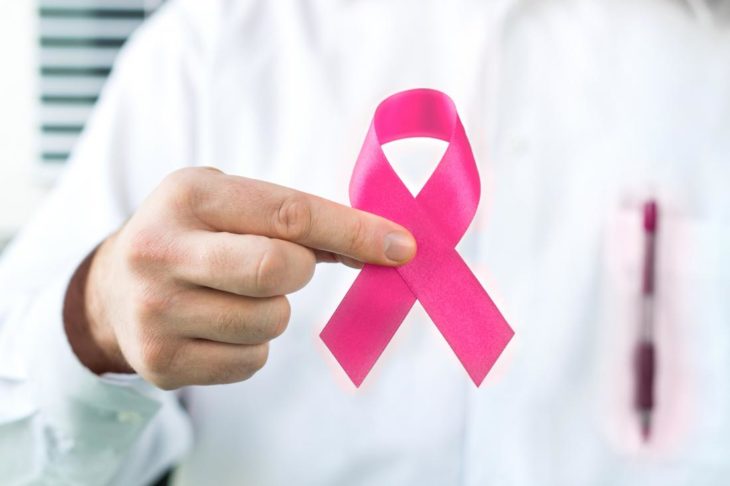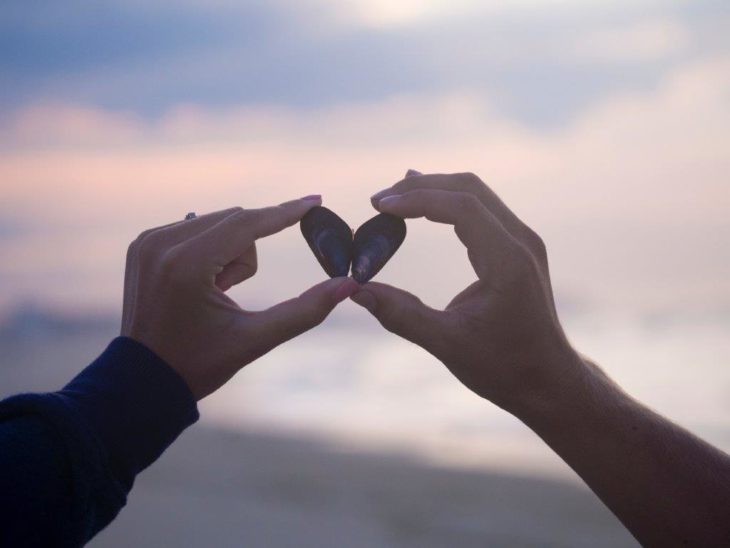I was on the way to the hospital when he called to arrange our first date. Sobbing, I pressed “Ignore” and tried to steady my breathing. I wondered if I would live to take him up on his offer for coffee — I’d blurted out “I only drink tea,” and now, I wished I had said something better, something nicer. I hoped I would have the chance to apologize.
A few days earlier, a guy in my film production workshop at college had rushed up to me after class and asked to speak to me alone. Having said maybe five sentences to him in my entire life, I couldn’t imagine what he wanted to talk about, but I waited anyway. He offered coffee, I countered with tea, he smiled sheepishly and said he didn’t drink coffee either, and I gave him my number. He departed just as fast as he had appeared, leaving me surprised and giddy.
To be honest, I’m not a romantic. I don’t believe in soul mates or love at first sight. Romantic comedies, unless they star Hugh Grant, make me weak in the knees for all the wrong reasons. Phrases like “we were made for each other” and “it was meant to be” sound an awful lot like rationalizing to me, and I don’t subscribe to that, either. But I do believe strongly in love.

Source: Medical News Today
I’m talking about real love, not the love that’s the creation of a thousand screenwriters and studio executives. A love that’s like spider silk — simple but layered; strong but flexible — and once it’s caught you it’s almost impossible to break free. To some extent, everyone dreams of finding themselves ensnared in this web, but I only dreamed that I would live long enough to try.
At 10, I was diagnosed with Stage 4 Neuroblastoma, an aggressive cancer usually found in children under five. It was treated with five rounds of chemotherapy, two bone marrow transplants, radiation treatments, and a fourteen-hour surgery that dragged on so long a priest was called to give me Last Rites. My hair fell out in wisps, then clumps. I dropped twenty pounds as the chemicals sapped my strength. At ten, I was just becoming aware of my appearance, and I felt decidedly ugly and unwanted.
Not surprisingly, I had trouble relating to my classmates when I finally returned to school. Everything that they were interested in, including boys, seemed inconsequential and shallow. I tried hard to have crushes on guys in middle school, but it was mostly to try and fit in. I would have loved for a guy to like me, but with a quarter of an inch of hair, no boobs to speak of, and the ongoing side effects of cancer — including chronic pain and bad skin — I was lucky to even have friends.
In high school, I had two long-term relationships. The first lasted six months and the second, a year. Both were emotionally manipulative. I desperately wanted them to understand what I had been through; how it had shaped my body and continued to shape my life, but they were unable (or unwilling). One actually fetishized my condition. He fancied himself a tortured soul and liked to trace with his fingers the foot-long scar on my back as it curved around my rib cage and ended at my navel. His touch was invasive and unwanted; it reminded me of all the doctors that had touched me without my permission, even though their intentions had been well-meaning.

Source: motivatedtomarry
To be clear, neither of these guys physically abused me. Discovering and growing into your sexuality is always hard, but my body was — and to an extent still is — a minefield of physical and emotional trigger points, which only made it harder.
When I got to college, I gave dating the — well, the old college try. But at a university that’s seventy-percent women, it wasn’t easy. Most of the men had what my friends and I called “Golden Cock Syndrome” — guys who wouldn’t normally get any female attention were suddenly in high demand. I had a few flings, but I still desperately wanted a relationship. At first, I was honest about this and honest about who I was. When I felt comfortable, I revealed that I was a cancer survivor. Some accepted this revelation with the proper gravity, but others grew cold towards me, like I was contagious. Some were even nasty. Eventually, to protect myself, I just stopped telling people.
During this phase of self-protective silence, I started sleeping with an environmental science major who was also a drug dealer on campus, the type you can only find at predominantly upper-middle class white colleges: a hippy with a habit and rich parents. I had no idea he sold drugs when I first had sex with him, but even after I found out, I didn’t stop. I would steal away to his room, tortured but unable to turn back because there was no happiness in our relationship, just need.
One night, the condom broke. He pulled away to put on a new one and nervously asked, “You’re on the pill though, right?” I was torn between laughing and crying. I use birth control, but not to prevent pregnancy. Radiation treatment destroyed my endocrine and reproductive system. I can’t create the hormones myself, so I use birth control as a substitute. This also means I can’t conceive. All of this flashed through my mind as I lay there on the extra long twin bed in the bluish dawn, unable to tell him any of it. Eventually, I think I mumbled a “yes.” I broke it off with him after that.
I entered my junior year completely uninterested in dating. I was focused on staying healthy and seeking therapy to deal with the repercussions of cancer. I took classes I was passionate about, including film production. Unlike most seminars at my college, this one was mostly men. Eli, with his six-foot-four, lanky frame, shocked-straight blond hair, and clear blue eyes, stood out. He could have been a Viking in a former life. To me, he looked more like a model. He wasn’t ruggedly handsome; rather, he had a kind of masculine beauty that was striking. But he was shy, and never really spoke in class. I actually thought he was gay until that day when he pulled me away from my friends, and we agreed to meet for tea.
Source: lovenomad
The following week, classes were on a short break, so I went home for a CT scan, the last in a long line of tests, to try and find an answer to a mystery pain that had dogged me for years. The morning afterwards, an unknown number popped up on my cell phone. It was my oncologist.
It was noisy where he was. I could hear muffled announcements for a final boarding call in the background.
“I want you to listen to me very carefully. I have some bad news,” he said. My breath caught in my throat.
“Okay,” I managed. It seems cliché to say that all sound except for my pumping heart died away, but it’s true. Everything else was white noise and the doctor’s voice became painfully loud.
“Your scan reveals what looks like a tumor on your liver and nodes in your lungs. You need to set up an appointment with your surgeon. Can you repeat that to me?”
Mom and Dad got out of work to accompany me to the hospital that afternoon. Eli called on the drive in. I did a lot of crying. In the exam room, my surgeon hugged me and said the tumor was benign and my lungs were fine. We all did some more crying. Then, he revealed that even though it wasn’t cancerous, the tumor needed to come out. At that moment, surgery didn’t faze me. After spending five hours convinced I was dying, all I cared about was that I was going to wake up tomorrow, that I could meet Eli for tea.
We spent several hours in the coffee shop near campus. The next week, I went to his annual Halloween party where he booked a film screening room and showed horror movies. He was still so painfully shy that I couldn’t tell if I had any feelings for him — the real him — but I wanted to give him a chance.
The knowledge that I had another tumor and needed another major surgery only complicated things. By day, I was nervous and distracted — a single smell or sound could instantly transport me back to when I was ten years old and trapped in a hospital bed. Every night I had nightmares dripping in blood. Should I tell Eli? We had only been on two dates. It wasn’t fair for me to burden him with this. It could overwhelm him, sending him running like so many others. At the same time, I was a mess, and maybe if he knew why I was so preoccupied, he would understand. I struggled with this decision. In the end, I chose option C: I would tell him I couldn’t see him right now.
The night of the Halloween dance, I went over to his room to break the news. Dressed as Wendy from Peter Pan, I smoothed my blue dress underneath me and sat down on his bed. He wasn’t in costume. Starting out calm and collected, I began to explain why I couldn’t see anyone right now, but image of scalpels, IV machines, and bleached hospital hallways kept floating to the top of my mind. I broke down into tears. He wrapped his arms around me and didn’t say a word as I told him everything. He said a few words of comfort, but it was his actions that really spoke to me. He wasn’t going anywhere.

Source: time
Seven months later, when I woke up from anesthesia, he was holding my hand. Over three years later, he’s been with me during doctor appointments, bouts of debilitating nerve pain, cross country road trips and conversations where we laugh so hard we cry. He’s sleeping next to me as I write this. Like spider silk, he’s strong but flexible; simple but layered; supportive and beautiful. He’s caught me in his web, and I’m not going anywhere.
Original by
